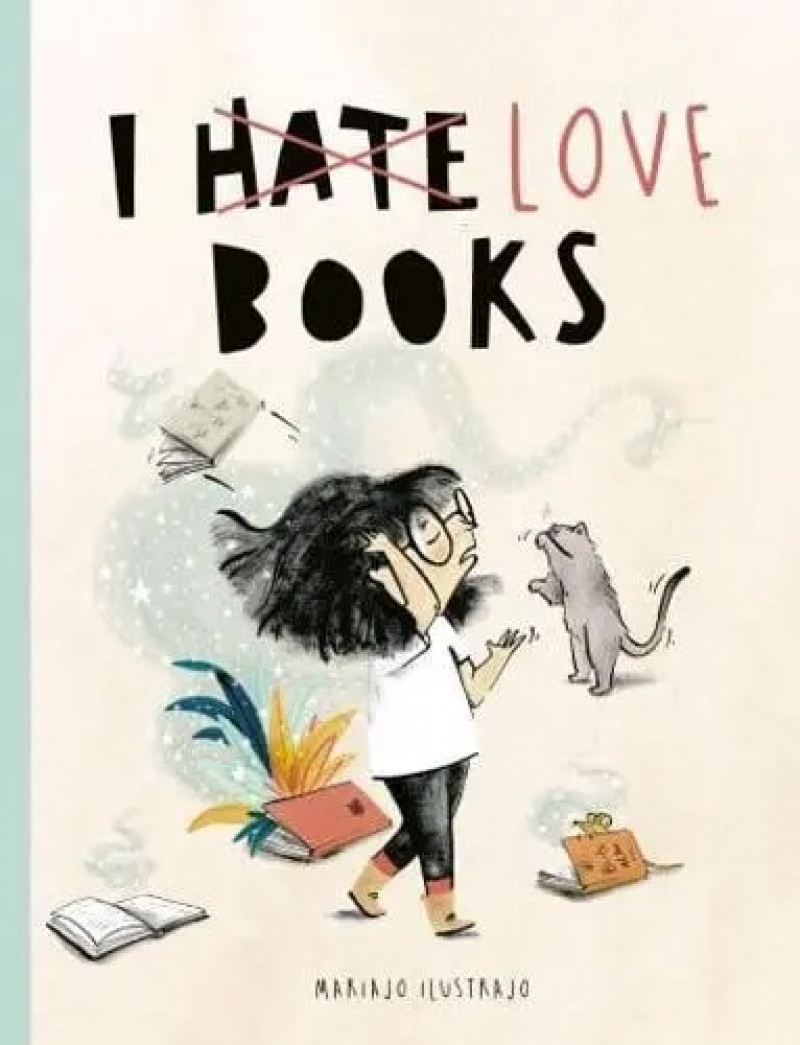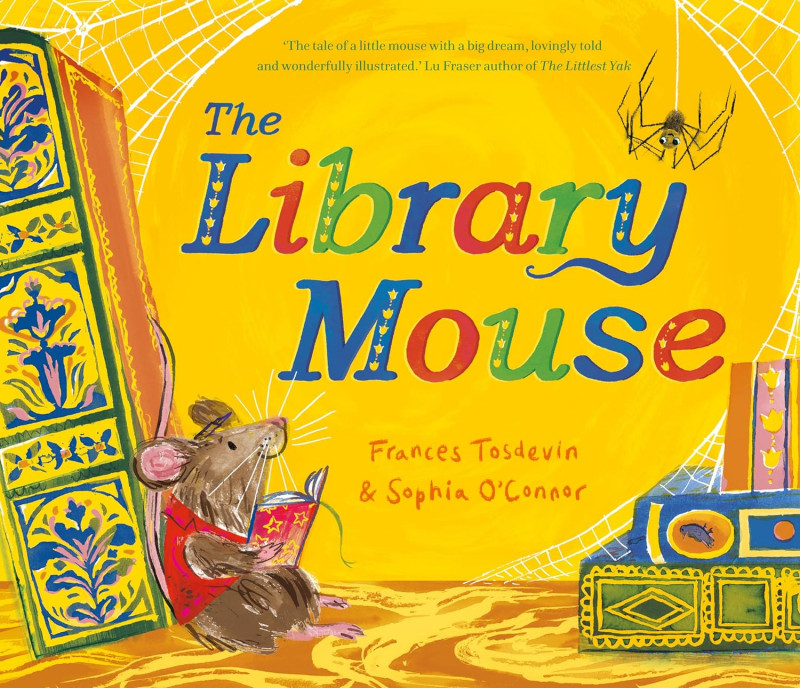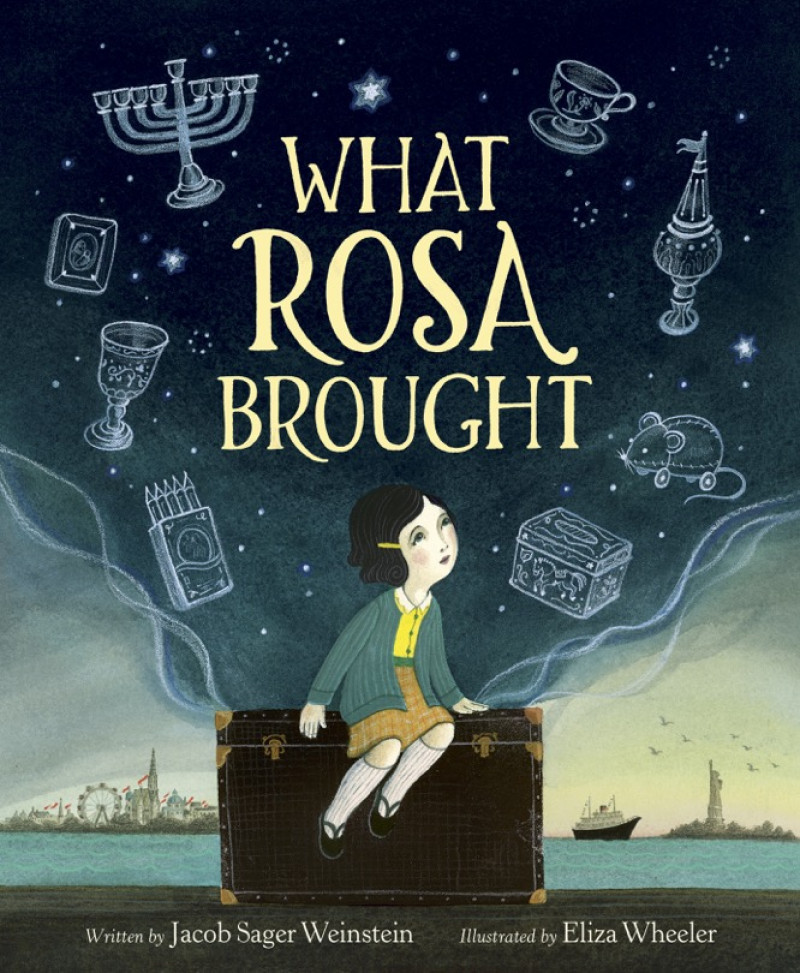Posted on: 01/03/2024
Picture books have been having a ‘moment’ for a while now: we know that the depth that illustrations can add to already beautiful words can make for an extraordinary pairing. Picture books can also be a gateway into independent reading for children who are perhaps more reluctant or unsure of reading for themselves. But so too are they vessels that the writers and illustrators pour themselves into, writing and drawing their own stories or giving voice to others. It’s a true labour of love to have a book published and, as we enter into World Book Day month, we’d like to acknowledge the makers of picture books of all kinds: books that have been written and illustrated by the same person such as many of Oliver Jeffers’ books; books by an author/illustrator collaboration as in the stunning Cinderella of the Nile by Beverley Naidoo, illustrated by Marjan Vafaeian; novellas, graphic novels, wordless picture books and extraordinary, ground-breaking books such as The Invention of Hugo Cabret by Brian Selznick: novel, picture - book and wordless text in one and also the first of its kind to win the prestigious Caldecott medal. We are thrilled to introduce to you three stunning new picture books this month in our ‘importance of picture books’ themed review.
I Hate Love Books by Mariajo llustrajo
(Frances Lincoln Children’s Books, 29th February 2024)
Winner of the 2023 Klaus Flugge Prize, an accolade that recognises the most promising newcomer in the world of picture-book creation, Ilustrajo has, once again, created an astonishing visual feast. The protagonist is OUTRAGED at the injustice of being asked to read an actual book during the school holidays. Aren’t the holidays for relaxing and having fun? Reading isn’t fun, well not for her anyway. A lover of tech devices, and quite possibly prone to exaggerated outbursts, she arrives home to deliver the devastating news… ‘ I bring terrible, terrible news. I have to read a book over the summer.’ Her sister’s response doesn’t make things any better: ‘The library in summer? It’s ridiculous. Scandalous. Completely outrageous!’ They venture to the library to choose something to read and after nothing seems to entice the book-hating child, her sister suggests a book that she herself enjoyed when younger… Under the expert tutelage of a little fennec fox, the child has no choice but to join in the adventure. She is – quite literally – spellbound! Accent colours in a mainly greyscale palette are the author’s signature style but when that moment of awe and wonder occurs and the child (albeit reluctantly at first) becomes immersed in the story’s magical world, the colours explode onto each page, creating such a clever contrast. This is the book that, for this child, becomes the gateway into reading for pleasure that we talk about so often at Literacy Tree. Perfect as a read-aloud text and perfect as a gift for a child who professes to hate books.


The Library Mouse by Frances Tosdevin and Sophia O’Connor
(UCLAN Publishing, 4th April 2024)
‘In a half-hidden hole where the wall met the floor, Sat a dreamer called Quill, with a pen in his paw…’ The aptly named ‘Quill’ is a tiny mouse with a huge number of stories to tell. His home in the library is perfect; he adores watching the faces of the children as they listen to the stories they’re read but could he really write something that might have the same effect? As he sits to write, his powerful pen creates words that are ‘bold and bright’. But how can he make his story heard? His voice is too small. He tries a different tack, hanging the pages of his story onto a washing line…but it only reaches shoe-height so that won’t work either. A heart-warming story of the power of books and the voice the written word can give someone who otherwise might go unheard. Beautifully illustrated in pastel hues and written entirely in rhyme, this glorious book is perfect for children in EYFS and KS1.
What Rosa Brought by Jacob Sager Weinstein, illustrated by Eliza Wheeler
(Katherine Tegen Books, 14th March 2024)
Rosa’s life in Vienna seems a charmed existence for a young girl: her Grandma cares for her while her parents work at their store. Rosa climbs trees whilst Grandma knits and together they read. ‘Then the Nazis came, and things changed.’ Rosa’s idyll is shattered just as the windows all around her and lives of her family and friends are. Her parents – like other Jewish people – are ordered by the Nazis to cease trading. But, determined in the face of adversity, Rosa’s father turns his hands to making trunks, selling just one at a time… and then one day, amongst the family’s desperate struggle to secure visas to America, ‘a rabbi came in with an unusual request.’ He has a visa but he needs a way of protecting his synagogue’s Torah from the Nazis…this sparks curiosity in Rosa: what would she take were she to leave? Her father skilfully crafts a trunk with a false base, creating a compartment that will conceal the Torah. Then the news comes that they have been waiting for: the family have been granted a visa for America. But only three people can go…
Heart-rending and poignant, this authentically voiced story is completely true: Rosa grew up to be the author, Jacob’s mother. Eliza Wheeler’s illustrations, often depicting incredibly difficult events yet somehow managing to still be utterly beautiful, show such a depth of feeling and love: for that is what Rosa brought. An important picture book, ideal for children in Key Stage 2 and perfect for children in Years 5 or 6 who may be studying Alte Zachen (Old Things) by Ziggy Hanaor and Benjamin Phillips to provide additional insight.

Posted in: Literature Review